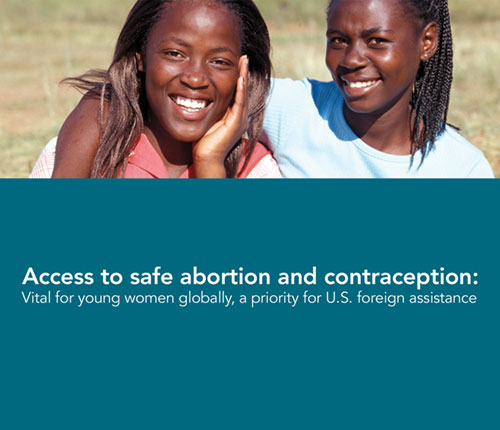
Aug 30, 2020
The United States, as the world’s foreign assistance leader, must play a key role in safeguarding a comprehensive and integrated approach to sexual and reproductive health and rights for young women. This fact sheet outlines policy challenges that deny young women their sexual and reproductive rights and puts forth policy actions the U.S. government should take: expand family planning funding, repeal the damaging Helms Amendment, permanently repeal the Mexico City Policy (also called the Global Gag Rule), and continue to work toward a progressive sexual and reproductive health agenda in platforms like the International Conference on Population and Development and the United Nations.
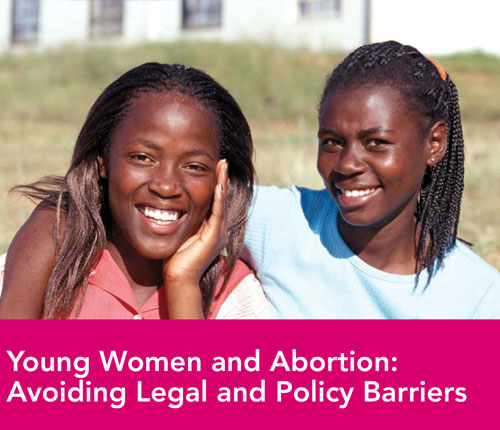
Aug 29, 2020
This resource is designed to help advocates and policymakers promote laws and policies that support access to safe abortion for young women. Parental involvement requirements in law or policy are common barriers that push young women toward illegal and often unsafe abortion.
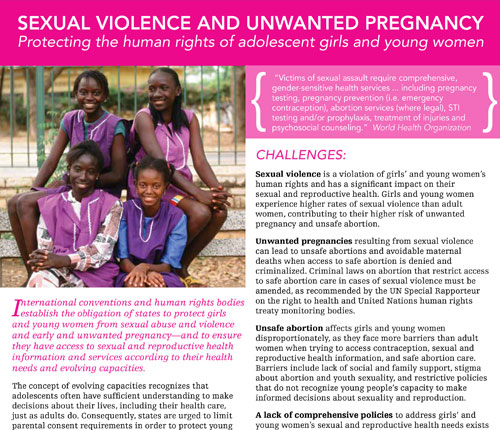
Aug 28, 2020
This publication provides evidence and explanation for why Ipas urges governments and policymakers to ensure that all young women—including survivors of sexual violence—have access to comprehensive sexual and reproductive health care, including safe abortion services.
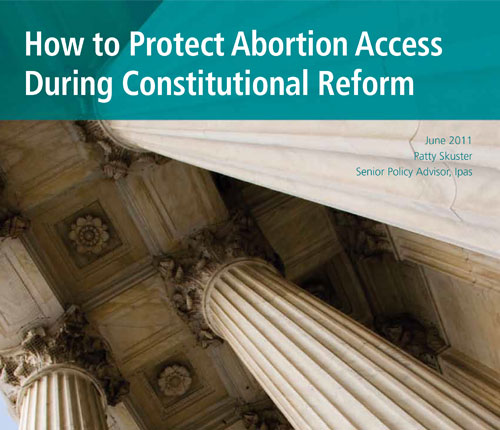
Aug 27, 2020
This toolkit is designed to help reproductive rights advocates participate in national constitutional reform processes. It looks at the potential consequences of constitutional protection of life at conception and outlines ways reproductive rights advocates can influence the constitutional reform process. It also may be useful for advocates facing constitutional amendments or engaging in litigation.
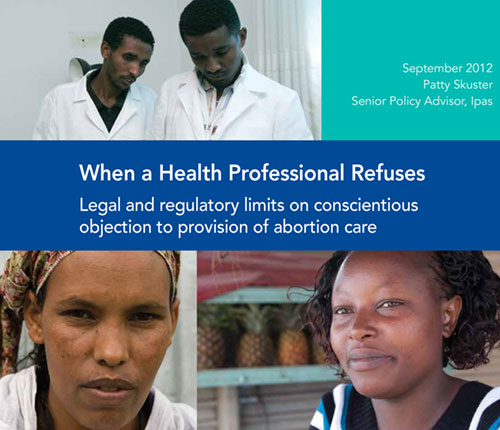
Aug 26, 2020
Health professionals’ refusal to provide service that they oppose on moral or religious grounds is a significant barrier to women’s access to safe abortion and other reproductive health services. This resource contains recommendations for enacting laws and regulations that safeguard women’s access to services while still protecting providers’ rights of conscience. It also provides information on human rights standards that address provider refusal and includes a list of further resources.






